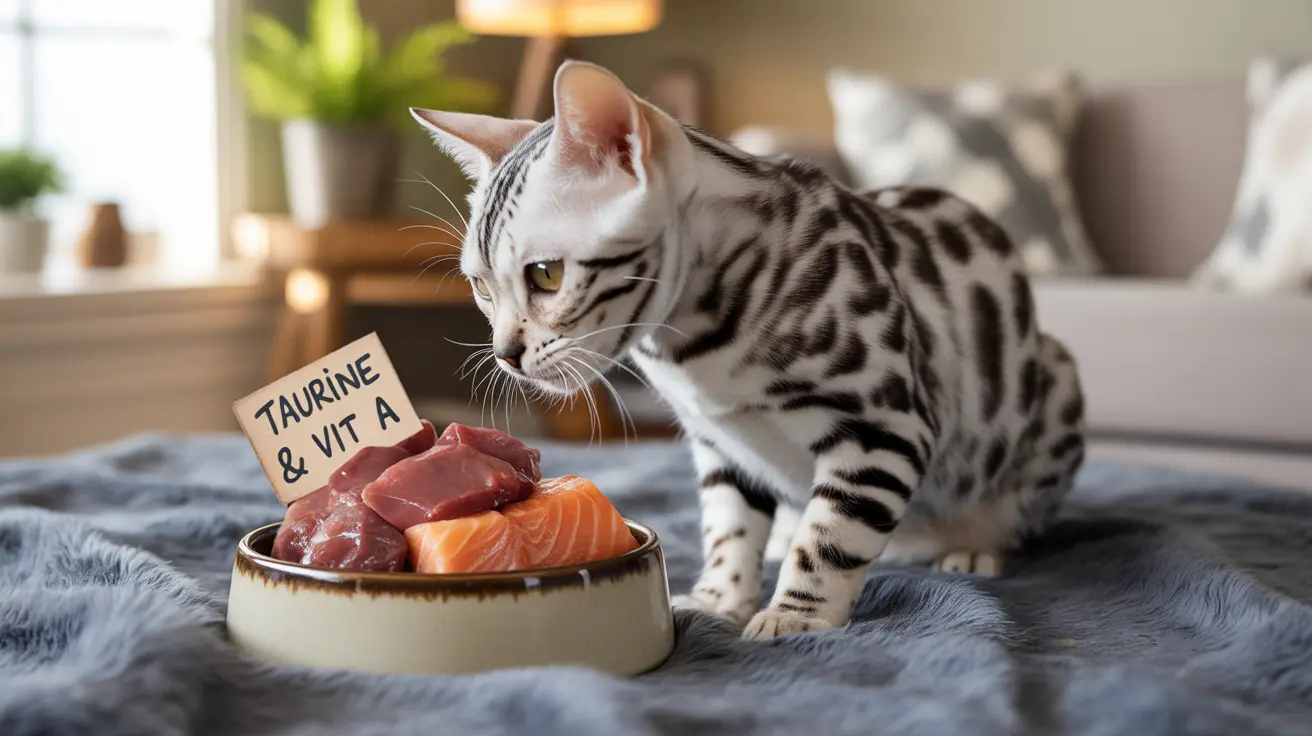Introduction
Understanding which foods improve cat's eyesight is crucial for maintaining your feline friend's ocular health. While many pet owners may have heard that certain foods like carrots can enhance vision, the reality of feline nutrition and eye health is more complex. As obligate carnivores, cats have unique dietary requirements that directly impact their visual capabilities.
In this comprehensive guide, we'll explore the essential nutrients and food sources that genuinely support feline eye health, debunk common myths, and provide you with actionable advice for maintaining your cat's vision through proper nutrition.
Critical Nutrients for Feline Vision Health
The foundation of good eyesight in cats relies on several key nutrients that must be obtained through their diet:
Taurine: The Vision Protector
Taurine is perhaps the most crucial nutrient for feline eye health. This essential amino acid cannot be synthesized by cats in sufficient quantities, making dietary sources vital. Without adequate taurine, cats can develop retinal degeneration, potentially leading to blindness.
Preformed Vitamin A
Unlike humans, cats cannot convert beta-carotene from plant sources into vitamin A. They require preformed vitamin A from animal tissues to maintain healthy vision and support retinal function.
Best Food Sources for Cat Eye Health
Animal-Based Proteins
The most beneficial foods for cat eye health include:
- Organ meats, especially liver (rich in preformed vitamin A)
- Fish like salmon and sardines (high in omega-3 fatty acids)
- Dark meat poultry (excellent source of taurine)
- Egg yolks (contains lutein and vitamin A)
Commercial Cat Food Considerations
Quality commercial cat foods are formulated to provide optimal nutrition for eye health. Look for products that specifically list taurine in their ingredients and meet AAFCO guidelines for complete nutrition.
The Truth About Vegetables and Cat Vision
While vegetables like carrots are often associated with good eyesight in humans, they play a minimal role in feline eye health. Cats lack the enzymatic pathways to efficiently utilize plant-based nutrients for vision support.
Prevention and Maintenance
To maintain optimal cat eye health through nutrition:
- Feed a balanced, meat-based diet
- Ensure adequate taurine intake through proper food selection
- Monitor for signs of vision problems
- Regular veterinary check-ups to catch potential issues early
Frequently Asked Questions
Which foods are best for improving my cat's eyesight naturally?
Animal-based proteins, particularly organ meats like liver, fish rich in omega-3s, and dark meat poultry, are the best natural sources of nutrients for feline eye health.
Can carrots really help improve my cat's vision?
No, carrots do not significantly improve cat vision. Cats cannot effectively convert beta-carotene from vegetables into vitamin A and require preformed vitamin A from animal sources.
How much taurine should be in my cat's food to support eye health?
Commercial cat food should contain at minimum 0.1% taurine in dry food and 0.2% in wet food on a dry matter basis, according to AAFCO guidelines.
What are the risks of feeding my cat a vegetarian or vegan diet regarding eye health?
Vegetarian or vegan diets pose serious risks to feline eye health due to insufficient taurine and preformed vitamin A, potentially leading to vision loss and other health problems.
How can I ensure my homemade cat food includes the right nutrients for maintaining healthy vision?
Consult with a veterinary nutritionist to properly formulate homemade cat food. Ensure inclusion of organ meats, fish, and appropriate supplements to meet all nutritional requirements for eye health.
Conclusion
Supporting your cat's eye health through proper nutrition requires understanding their unique dietary needs as obligate carnivores. Focus on providing high-quality animal-based proteins and ensure adequate taurine intake through either commercial or properly formulated homemade diets. Remember that regular veterinary check-ups remain essential for maintaining optimal feline vision health.






